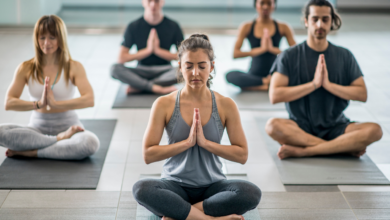Yoga: Can help reduce stress, improve flexibility, and boost immunity.

Brief information about it:
Yoga is a mind-body practice that combines physical postures, breathing techniques, and meditation. It originated in ancient India and has been practiced for thousands of years
Uses:
· Physical Health: Improves flexibility, strength, balance, and posture.
· Mental Health: Reduces stress, anxiety, and depression.
· Emotional Well-being: Enhances mood and promotes relaxation.
· Spiritual Growth: Fosters mindfulness and inner peace.
Mechanism of action:
Yoga works through a combination of physical, mental, and spiritual practices:
- Physical Postures (Asanas): Stretches and strengthens muscles, improves flexibility, and promotes better circulation.
- Breathing Techniques (Pranayama): Calms the mind, reduces stress, and improves lung function.
- Meditation: Reduces stress, anxiety, and promotes mindfulness.
Elimination half life:
Yoga doesn’t have a specific elimination half-life as it’s a practice that affects the body and mind on a holistic level. The benefits of yoga can be long-lasting.
Route of Administration:
- Physical Practice: Yoga involves physical postures, breathing techniques, and meditation, which are practiced through physical movement and mental focus.
Side effects:
Yoga is generally safe for most people. However, some individuals may experience mild side effects, such as:
- Muscle soreness
- Dizziness
- Fatigue
Dose:
The “dose” of yoga can vary depending on individual needs and preferences. It’s recommended to start with gentle practices and gradually increase the intensity as you progress.
Precautions:
· Injuries: It’s important to practice yoga under the guidance of a qualified instructor, especially for beginners, to avoid injuries.
· Medical Conditions: Individuals with certain medical conditions should consult with a healthcare provider before starting a yoga practice.





